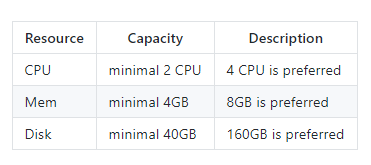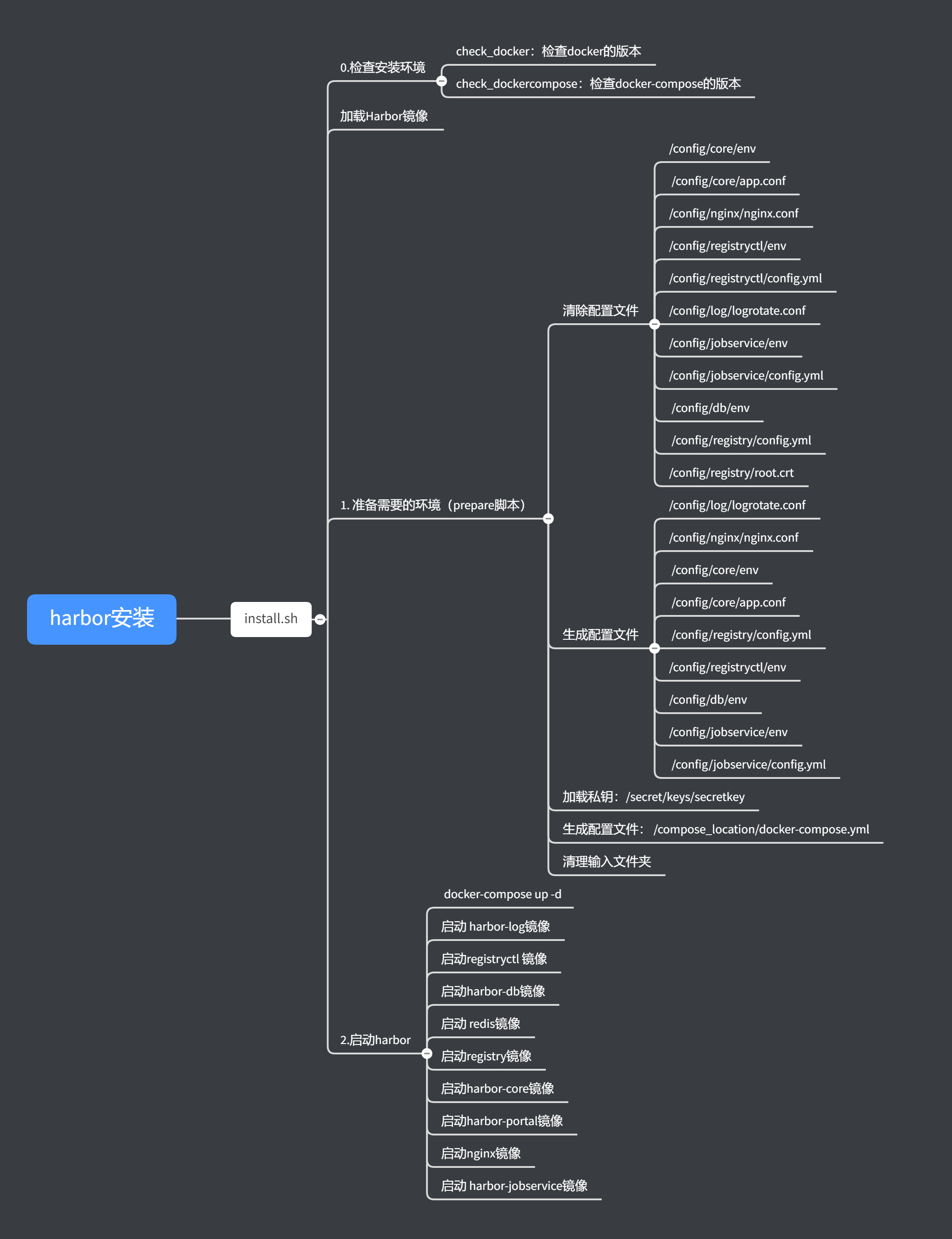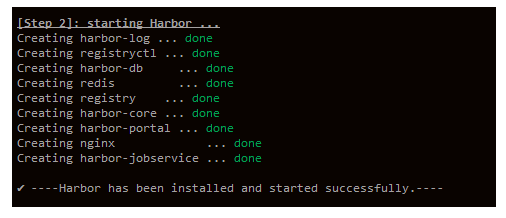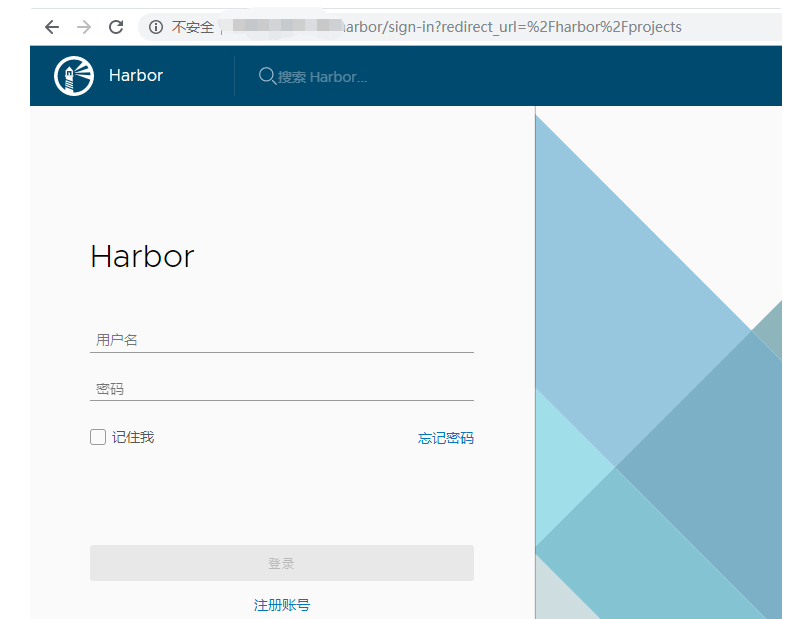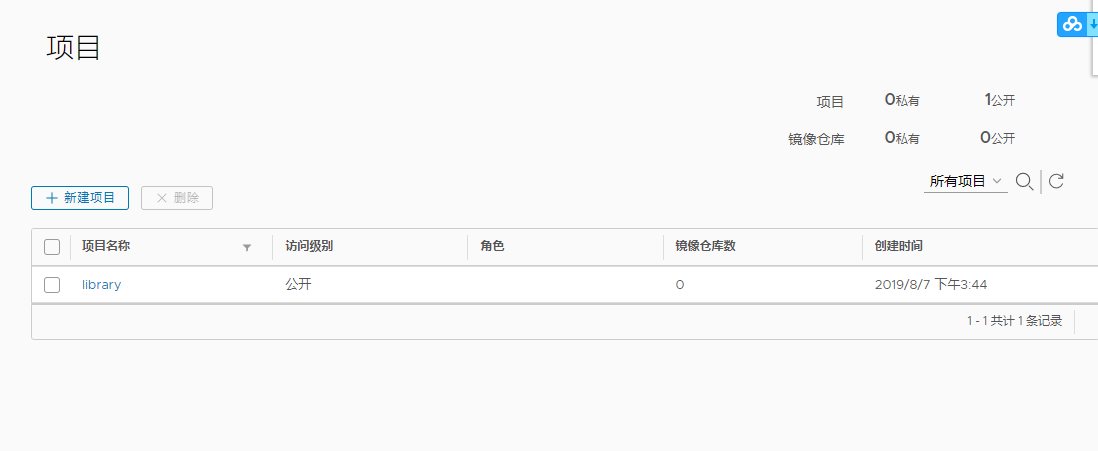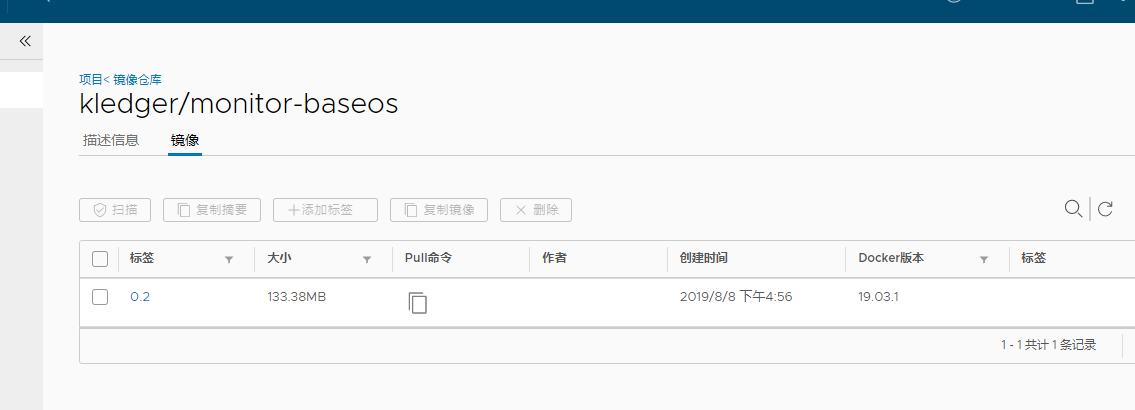手把手教你搭建docker |
您所在的位置:网站首页 › dockerhub注册 › 手把手教你搭建docker |
手把手教你搭建docker
|
目录前言为什么要搭建docker-hub1. 什么是harbor2. harbor特征3. harbor的安装3.1 目标环境的要求3.1.1 硬件3.1.2 软件3.1.3 网络端口3.2 安装步骤3.2.1 下载安装文件3.2.2 配置harbor.yml3.2.3 执行安装并启动3.2.4 管理Harbor的生命周期4. harbor的使用4.1 创建项目4.2 拉取/推送镜像
前言
为什么要搭建docker-hub
第一,由于众所周知的原因,我们从docker下载镜像的时候,速度慢,而我们自己搭建docker-hub速度则很快。 第二,官方的镜像有的时候无法满足我们的业务需求,我们需要进行定制开发,在完成之后,上传到公司内部的docker-hub中,方便其他人进行下载。 基于以上的原因,我们就需要搭建自己的docker-hub了。 经过上面的需求分析,我们选择了harbor来搭建我们的docker-hub。 harbor 1. 什么是harborHarbor正是一个用于存储Docker镜像的企业级Registry服务。是一个开源的可信云本机注册表项目,用于存储,签名和扫描内容。 2. harbor特征 云本机注册表:Harbour 支持容器映像和Helm图表,可作为容器运行时和业务流程平台等云本机环境的注册表。 基于角色的访问控制:用户和存储库通过“项目”进行组织,用户可以对项目下的图像或Helm图表拥有不同的权限。 基于策略的复制:可以基于具有多个过滤器(存储库,标记和标签)的策略在多个注册表实例之间复制(同步)图像和图表。如果遇到任何错误,Harbor会自动重试复制。非常适合负载平衡,高可用性,多数据中心,混合和多云场景。 漏洞扫描:Harbor定期扫描图像并警告用户漏洞。 LDAP / AD支持:Harbor与现有企业LDAP / AD集成以进行用户身份验证和管理,并支持将LDAP组导入Harbor并为其分配适当的项目角色。 OIDC支持:Harbour利用OpenID Connect(OIDC)来验证由外部授权服务器或身份提供商进行身份验证的用户的身份。可以启用单点登录以登录Harbor门户。 图像删除和垃圾收集:可以删除图像,并可以回收它们的空间。 公证人:可以确保图像的真实性。 图形用户门户:用户可以轻松浏览,搜索存储库和管理项目。 审计:跟踪存储库的所有操作。 RESTful API:适用于大多数管理操作的RESTful API,易于与外部系统集成。嵌入式Swagger UI可用于探索和测试API。 轻松部署:提供在线和离线安装程序。此外,Helm Chart可用于在Kubernetes上部署Harbor。 3. harbor的安装安装分为在线安装和离线安装,我们这里选择在线安装。 3.1 目标环境的要求需要安装docker和docker-compose,且有如下要求:docker 17.06.0-ce+ and docker-compose 1.18.0+ 3.1.1 硬件
我们可以从这里看所有的版本。 在线安装 $ tar xvf harbor-online-installer-.tgz 离线安装: $ tar xvf harbor-offline-installer-.tgz 3.2.2 配置harbor.yml必须设置的参数: hostname:目标机器的ip地址,可以是域名和公网ip,不能设置为127.0.0.1和localhost。 data_volume:harbor数据的存放地址。 harbor_admin_password:管理员密码,默认admin/Harbor12345 ,且只会生效一次。 database:数据库相关配置,默认密码root123 jobservice log:日志相关 level: 日志的级别,debug, info, warning, error, fatal; rotate_count:最多保存几个日志文件 rotate_size:每个日志文件的大小 location:日志存放目录可选的参数。 http:http服务的端口号 https: port:端口号 certificate:ssl证书 private_key:ssl-key的路径 external_url:external proxy启用的时候,external_url可用,但是hostname不再可用。贴出我的配置文件: # Configuration file of Harbor # The IP address or hostname to access admin UI and registry service. # DO NOT use localhost or 127.0.0.1, because Harbor needs to be accessed by external clients. hostname: *.*.*.* # http related config http: # port for http, default is 80. If https enabled, this port will redirect to https port port: 80 # https related config # https: # # https port for harbor, default is 443 # port: 443 # # The path of cert and key files for nginx # certificate: /your/certificate/path # private_key: /your/private/key/path # Uncomment external_url if you want to enable external proxy # And when it enabled the hostname will no longer used # external_url: https://reg.mydomain.com:8433 # The initial password of Harbor admin # It only works in first time to install harbor # Remember Change the admin password from UI after launching Harbor. harbor_admin_password: Harbor12345 # Harbor DB configuration database: # The password for the root user of Harbor DB. Change this before any production use. password: root123 # The default data volume data_volume: /opt/docker-hub/data # Harbor Storage settings by default is using /data dir on local filesystem # Uncomment storage_service setting If you want to using external storage # storage_service: # # ca_bundle is the path to the custom root ca certificate, which will be injected into the truststore # # of registry's and chart repository's containers. This is usually needed when the user hosts a internal storage with self signed certificate. # ca_bundle: # # storage backend, default is filesystem, options include filesystem, azure, gcs, s3, swift and oss # # for more info about this configuration please refer https://docs.docker.com/registry/configuration/ # filesystem: # maxthreads: 100 # # set disable to true when you want to disable registry redirect # redirect: # disabled: false # Clair configuration clair: # The interval of clair updaters, the unit is hour, set to 0 to disable the updaters. updaters_interval: 12 # Config http proxy for Clair, e.g. http://my.proxy.com:3128 # Clair doesn't need to connect to harbor internal components via http proxy. http_proxy: https_proxy: no_proxy: 127.0.0.1,localhost,core,registry jobservice: # Maximum number of job workers in job service max_job_workers: 10 chart: # Change the value of absolute_url to enabled can enable absolute url in chart absolute_url: disabled # Log configurations log: # options are debug, info, warning, error, fatal level: info # Log files are rotated log_rotate_count times before being removed. If count is 0, old versions are removed rather than rotated. rotate_count: 50 # Log files are rotated only if they grow bigger than log_rotate_size bytes. If size is followed by k, the size is assumed to be in kilobytes. # If the M is used, the size is in megabytes, and if G is used, the size is in gigabytes. So size 100, size 100k, size 100M and size 100G # are all valid. rotate_size: 200M # The directory on your host that store log location: /var/log/harbor #This attribute is for migrator to detect the version of the .cfg file, DO NOT MODIFY! _version: 1.8.0 # Uncomment external_database if using external database. # external_database: # harbor: # host: harbor_db_host # port: harbor_db_port # db_name: harbor_db_name # username: harbor_db_username # password: harbor_db_password # ssl_mode: disable # clair: # host: clair_db_host # port: clair_db_port # db_name: clair_db_name # username: clair_db_username # password: clair_db_password # ssl_mode: disable # notary_signer: # host: notary_signer_db_host # port: notary_signer_db_port # db_name: notary_signer_db_name # username: notary_signer_db_username # password: notary_signer_db_password # ssl_mode: disable # notary_server: # host: notary_server_db_host # port: notary_server_db_port # db_name: notary_server_db_name # username: notary_server_db_username # password: notary_server_db_password # ssl_mode: disable # Uncomment external_redis if using external Redis server # external_redis: # host: redis # port: 6379 # password: # # db_index 0 is for core, it's unchangeable # registry_db_index: 1 # jobservice_db_index: 2 # chartmuseum_db_index: 3 # Uncomment uaa for trusting the certificate of uaa instance that is hosted via self-signed cert. # uaa: # ca_file: /path/to/ca 3.2.3 执行安装并启动bash install.sh 我们分析下install.sh。 文档链接:https://mubu.com/doc/OOec-ZgGu 密码:eu3u
如果执行成功,会出现如下提示:
我们可以在浏览器输入提下内容,将看到启动界面如下:
输入用户名和密码后,我们可以看到我们的docker-hub仓库。
这部分是十分庞大的,我就简单的介绍下常用的,完整的文档见这里。 4.1 创建项目项目可以分为公有的和私有的。 具体的操作不再赘述,去操作一遍就都会了。 4.2 拉取/推送镜像首先我们需要进行登录,docker login ip 但是我们可能遇到下面的错误。
这样的原因是因为Harbor默认使用http,docker默认使用https的原因。 我们可以强制docker使用http,要在daemon.json中添加--insecure-registry myregistrydomain.com,即 { "log-driver":"json-file", "log-opts": {"max-size":"100m", "max-file":"1"}, "insecure-registries" : ["myregistrydomain.com"] }然后我们还可能遇到下面的错误:
在github上的官方找到了下面的解决方案:原因是因为ubuntu上安装docker-compose的时候,不需要golang-docker-credential-helpers这个组件,我们把它删除即可,所以apt-get remove golang-docker-credential-helpers 这是第一种方案,第二中方案是让Harbor使用https,即申请一个CA证书,然后把CA证书放在/etc/docker/certs.d/myregistrydomain.com/ca.crt中。 下面我们进行推送镜像。 docker tag monitor-baseos:0.2 ip/kledger/monitor-baseos:0.2 docker push ip/kledger/monitor-baseos:0.2记得替换ip。
然后我们在浏览器中就可以看到了。
拉取镜像就更加简单了。 docker pull ip/kledger/monitor-baseos:0.2 同样的记得修改ip地址。 |
【本文地址】
今日新闻 |
推荐新闻 |
